Disclosure: This article contains affiliate links. We may earn a commission from purchases at no extra cost to you, which helps our travel content.
When I traded my correctional officer uniform for travel clothes last fall, I never expected to find myself deep-diving into the tech ecosystems of Asia's most innovative cities. But there I was, standing in the neon glow of Tokyo's Akihabara district with a meticulously planned itinerary and a newfound appreciation for how technology is reshaping our world. As someone who typically plans family-friendly wellness retreats, this solo business adventure through Tokyo and Bangalore stretched my travel muscles in exciting new ways. Whether you're a startup founder looking for inspiration, a corporate executive seeking partnership opportunities, or simply a tech enthusiast who appreciates luxury travel, this two-week journey connects you with the beating hearts of innovation in Japan and India. I've mapped out the essential experiences, meeting spots, and cultural insights that transformed my understanding of global technology—and might just revolutionize yours too.
Tokyo: Where Tradition Meets Tomorrow
Tokyo doesn't just embrace the future—it actively creates it. My first morning began in Shibuya, watching the famous crossing from above while sipping meticulously prepared matcha in the Bose Noise Cancelling Headphones 700 that became my sanctuary throughout this trip. The contrast was perfect: ancient tea ceremony precision meeting cutting-edge sound technology that blocked the urban symphony below.
The real tech immersion began at Miraikan (The National Museum of Emerging Science and Innovation), where I interacted with ASIMO, Honda's humanoid robot, and explored exhibits that blur the line between science fiction and reality. What struck me most was how seamlessly the Japanese integrate technological innovation with their cultural values—robots designed with distinctly Japanese aesthetic sensibilities and problem-solving approaches.
My afternoon in Akihabara, Tokyo's electric town, felt like stepping into a tech lover's fever dream. Beyond the anime facades lies a treasure trove of components, gadgets, and electronics that aren't available anywhere else in the world. Even as someone who typically prioritizes hot springs over hardware, I found myself mesmerized by the specialized stores where you can build custom tech from scratch.
The highlight was accessing Tokyo's exclusive tech incubator spaces through pre-arranged visits. At Digital Garage in Shibuya, I watched entrepreneurs pitch ideas that could transform industries, their passion transcending language barriers. Later, at CIC Tokyo, I participated in a roundtable discussion about wellness technology that connected surprisingly well with my usual travel focus—proving that our professional and personal interests often intersect in unexpected ways.
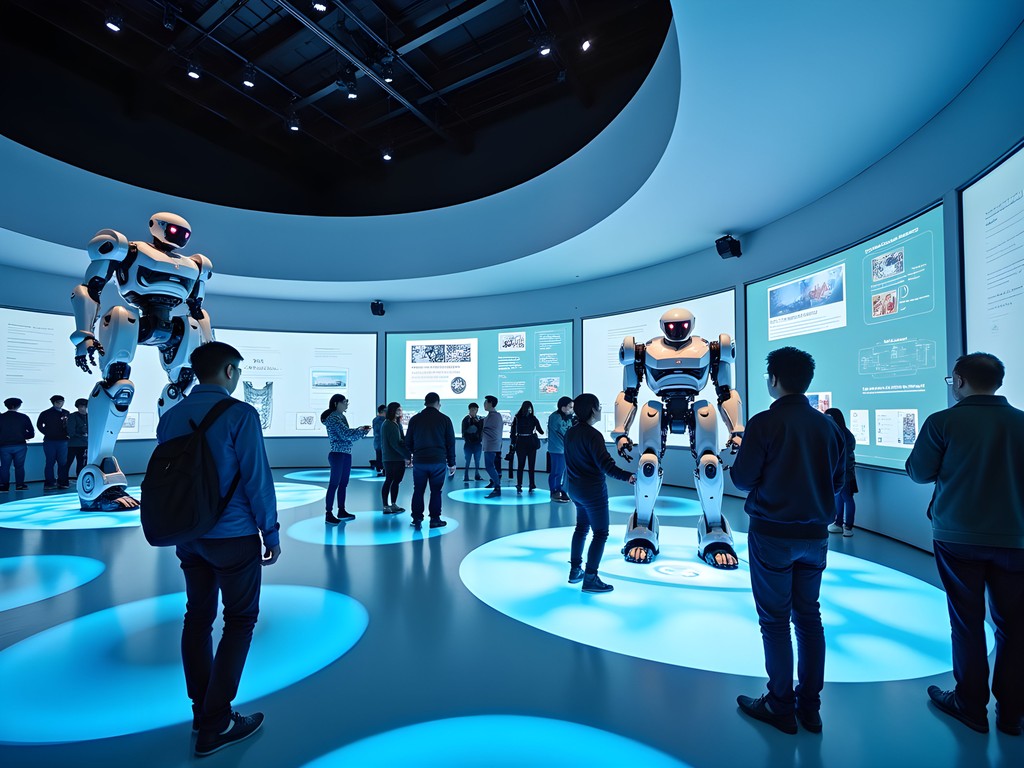
💡 Pro Tips
- Book incubator and coworking space tours at least 3 weeks in advance—they fill quickly and many require background checks
- Hire a tech-specialized guide for Akihabara who can translate and navigate the specialized shops
- Download the Tokyo Metro app with the premium subscription—the time saved navigating is worth every yen
Networking in Neon: Tokyo's Business Culture After Hours
The real magic of Tokyo's tech scene happens after business hours, when formality softens (slightly) and relationships are forged over meticulous meals and perfectly poured drinks. I discovered that my business card holder was perhaps the most important accessory I packed—the ritualistic exchange of business cards (meishi) remains sacred even in the most forward-thinking tech companies.
Roppongi Hills Mori Tower became my evening headquarters, where the 52nd floor offers both breathtaking city views and a concentration of upscale bars frequented by the international business community. Here, I learned that patience is everything in Japanese business networking. Conversations build slowly, personal connections precede business discussions, and rushing either is considered poor form.
One evening, I splurged on a private dinner at an exclusive ryotei in Ginza, where a senior AI developer from a major Japanese corporation explained the philosophical differences between Eastern and Western approaches to artificial intelligence over immaculately presented kaiseki courses. The insights gained during that five-hour dinner proved more valuable than days of formal meetings.
Perhaps most surprising was discovering Tokyo's luxury coworking spaces, which redefine what a temporary office can be. At Bureau Shinagawa, the minimalist design, soundproof phone booths, and complimentary artisanal tea service created an environment where focused work felt genuinely pleasurable—a stark contrast to the fluorescent-lit staff room where I normally catch up on emails between shifts back home.
These spaces aren't merely about aesthetics; they're carefully engineered environments where global business happens. I watched as startup founders pitched to venture capitalists over single-origin coffee, and corporate executives negotiated partnerships in whispered conversations by stylish water features designed to ensure privacy.
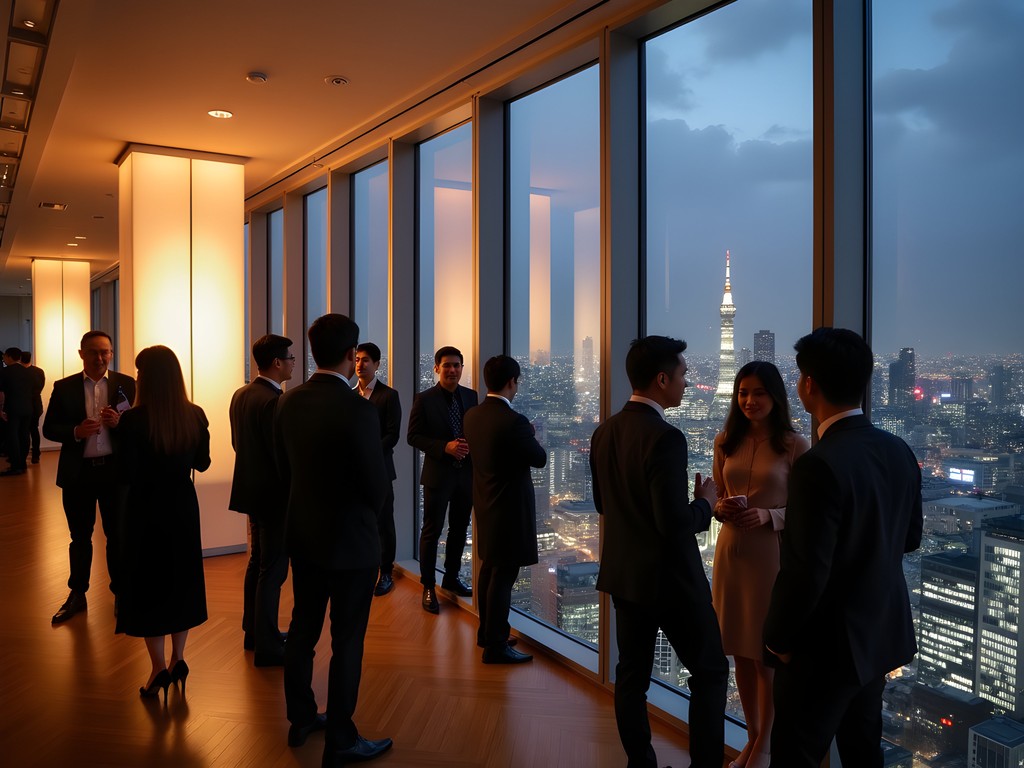
💡 Pro Tips
- Learn basic business card etiquette before arriving—present and receive cards with both hands and a slight bow
- Reserve private dining rooms at high-end restaurants through your hotel concierge for important meetings
- Consider renting a portable WiFi device rather than relying on public networks for sensitive business communications
Bangalore: Silicon Valley of the East
Landing in Bangalore after Tokyo feels like switching from classical music to jazz—both brilliant but with entirely different rhythms. Where Tokyo's innovation feels meticulously orchestrated, Bangalore's tech scene pulses with improvisational energy and entrepreneurial spirit.
My first stop was Electronic City, Bangalore's original tech hub where giants like Infosys have their campuses. Through pre-arranged tours, I witnessed how these massive companies have created self-contained ecosystems with everything from cutting-edge research facilities to cricket pitches. What impressed me most wasn't just the technology, but how these companies have developed comprehensive wellness programs for employees—something I'm passionate about integrating into my own workplace back in corrections.
The real revelation came when exploring Bangalore's startup ecosystem. At Koramangala, often called India's Silicon Valley, I spent days hopping between coworking spaces like WeWork Galaxy and BHIVE, where the density of innovation per square foot rivals anywhere I've visited. Young founders pitched me ideas ranging from AI-powered education platforms to sustainable agriculture technology, their enthusiasm contagious.
My portable power bank became my constant companion, as days stretched into nights of conversations with entrepreneurs whose workdays know no time zones. The power bank's multiple ports proved essential for keeping my phone, tablet, and noise-cancelling headphones charged through marathon networking sessions.
What makes Bangalore unique is how traditional Indian hospitality infuses its business culture. Meetings that would be strictly time-limited in Tokyo often extended into meals where conversations deepened. At the invitation of a healthcare AI developer, I joined a family dinner where three generations debated the ethical implications of medical algorithms over home-cooked South Indian cuisine—a perfect example of how technology discussions in India naturally incorporate broader societal perspectives.
The city's luxury hotels have adapted beautifully to serve as business hubs. The ITC Gardenia became my sanctuary, its business center offering private meeting pods with integrated technology that made connecting with colleagues back home seamless despite the 10.5-hour time difference.
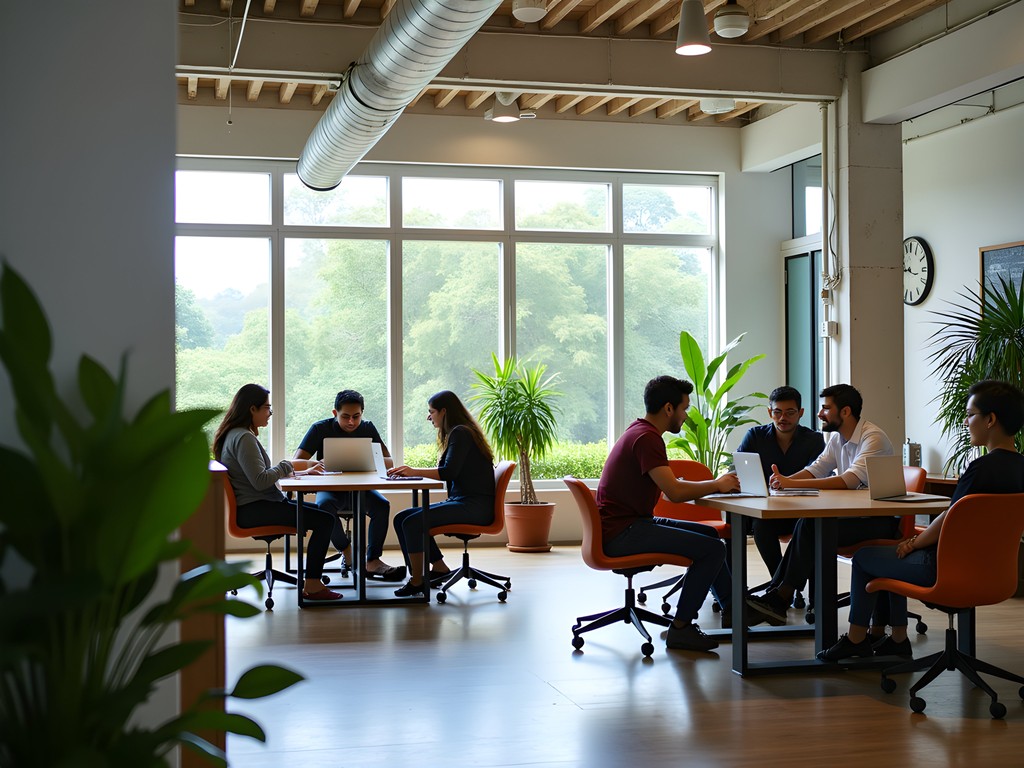
💡 Pro Tips
- Schedule meetings with extra buffer time—Bangalore traffic can be unpredictable even with the best planning
- Use Uber or Ola for business travel rather than attempting to navigate public transportation between tech hubs
- Consider staying in hotels near Koramangala or Indiranagar to minimize commute times to startup hubs
Wellness Tech: Finding Balance in Innovation Hubs
If there's one thing my years of exploring hot springs and yoga retreats has taught me, it's that high-intensity environments demand intentional wellness practices. Both Tokyo and Bangalore offer fascinating approaches to maintaining balance in their tech-driven cultures.
In Tokyo, I discovered high-tech wellness solutions that would seem like science fiction back home. At Tokyo Stress Free in Roppongi, I experienced a neurofeedback session where my brain waves were monitored in real-time while I performed guided meditation. The personalized data helped me understand exactly which techniques most effectively reduced my stress response—information I've continued using during challenging shifts at the correctional facility.
The city's love for automation extends to wellness, with fully automated massage chairs that rival human therapists. I invested in a travel massage device after experiencing these technological marvels. Though not as sophisticated as Tokyo's options, this portable device saved me during long flights and after days of walking through tech campuses.
Bangalore offers a different approach, blending ancient wellness wisdom with modern innovation. At the Soukya International Holistic Health Centre, I experienced how traditional Ayurvedic practices are being enhanced with biotracking technology. Doctors prescribed personalized treatments based on both traditional diagnostics and data from wearable devices tracking my sleep patterns, stress levels, and physical activity.
What surprised me most was discovering Bangalore's corporate wellness programs. Several major tech companies have developed comprehensive approaches that include everything from on-site yoga studios to mental health apps developed specifically for their workforce. At Mindtree's campus, I participated in a mid-day meditation session where employees used VR headsets programmed with guided visualizations of natural settings—combining technology with mindfulness in a uniquely Indian way.
These experiences reinforced my belief that technology, when thoughtfully applied, can enhance rather than detract from our wellbeing. I've returned home with practices from both cities that help me maintain balance despite my demanding schedule—proof that even business travel can contribute to personal growth.
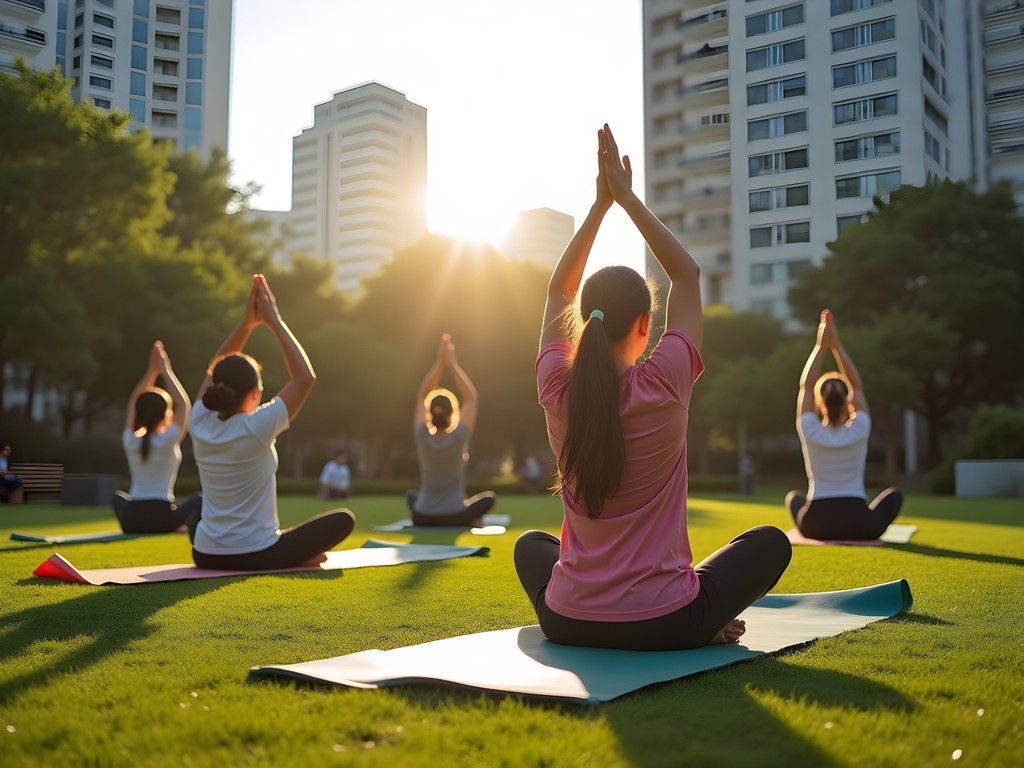
💡 Pro Tips
- Schedule decompression time between business meetings—both cities can overwhelm the senses
- Book hotels with proper fitness facilities—jet lag workouts are essential for maintaining energy across time zones
- Try the Headspace app's Asia-specific meditation programs that address the unique stressors of these innovation hubs
Luxury Accommodations with Tech-Forward Features
When exploring innovation hubs, where you stay can significantly enhance your experience and productivity. Both Tokyo and Bangalore offer luxury accommodations that function as extensions of the tech ecosystem rather than mere places to sleep.
In Tokyo, I splurged on the Aman Tokyo, where the traditional Japanese aesthetic meets cutting-edge technology. My room featured an invisible automation system controlling everything from temperature to privacy screens with intuitive touch panels that somehow felt both futuristic and timeless. The hotel's ability to arrange private meetings with tech leaders proved invaluable, with the concierge securing introductions that would have taken months to arrange through conventional channels.
For a more immersive tech experience, Tokyo's TRUNK(HOTEL) offers a boutique alternative where sustainability technology is showcased throughout. From recycled material construction to energy management systems visible to guests through dedicated tablets, staying here was like experiencing a living laboratory for eco-innovation. Their coworking space became my favorite morning spot, where conversations with other guests—many in town for the same tech conferences—led to unexpected collaborations.
In Bangalore, the Ritz-Carlton established itself as my high-tech headquarters. Their recently renovated rooms feature voice-activated controls, wireless charging built into every surface, and bathroom mirrors with integrated information displays that helped me prepare for each day's meetings while catching up on global tech news. Their business concierge service proved exceptional, arranging last-minute visits to startups that weren't on my original itinerary.
For a uniquely Indian luxury tech experience, The Leela Palace Bangalore combines opulent traditional design with state-of-the-art business facilities. Their dedicated tech butler service—assigned specifically to business travelers—meant I had 24/7 support for everything from troubleshooting video conferencing to arranging specialized tech-focused tours of the city.
My travel router became essential in both cities, allowing me to create secure private networks in hotel rooms and conference centers alike. When dealing with sensitive business communications, this extra layer of security proved worth every penny of its modest cost.
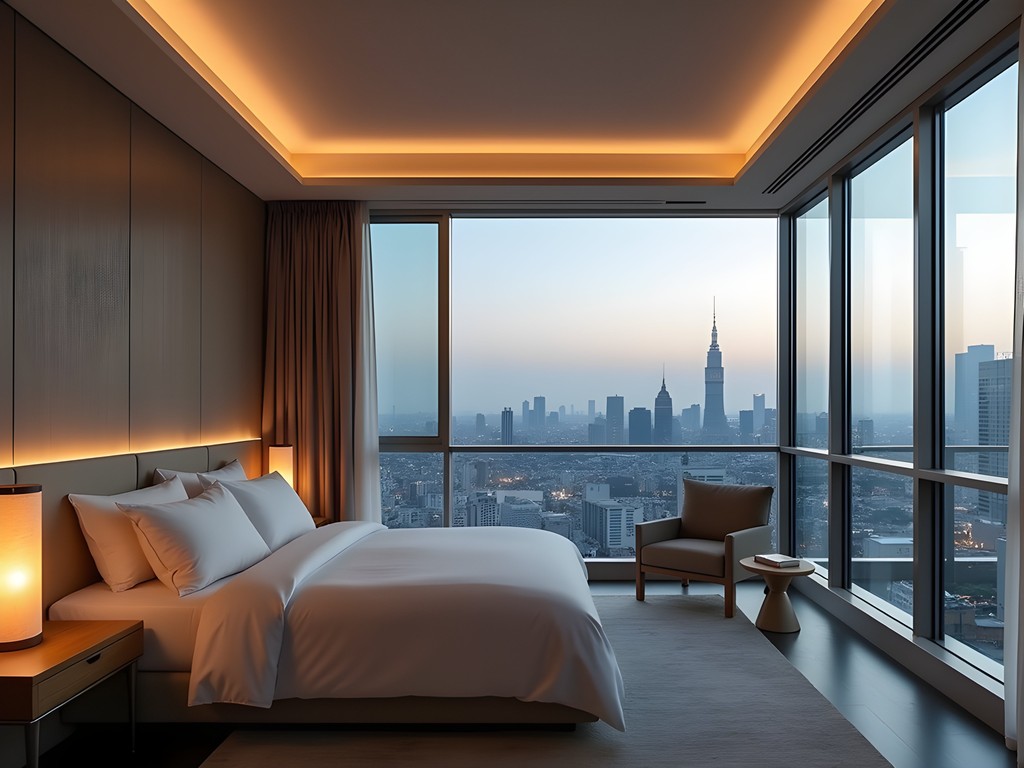
💡 Pro Tips
- Request rooms on higher floors in Tokyo hotels for better WiFi signals and less street noise
- Book hotels with executive lounges for impromptu meeting spaces with reliable technology and privacy
- Consider suite accommodations in Bangalore where separate living areas can be converted to meeting spaces for confidential discussions
Final Thoughts
As I boarded my flight home, my perspective on technology had fundamentally shifted. These two weeks traversing the innovation capitals of Asia revealed that true tech advancement isn't just about creating new devices or platforms—it's about solving human problems with elegance and purpose. Tokyo and Bangalore approach this mission through different cultural lenses, yet both demonstrate how innovation thrives when it respects human needs and values. For business travelers willing to venture beyond Silicon Valley, these cities offer unparalleled opportunities to witness tomorrow's technologies today, while experiencing some of the world's most fascinating cultural contrasts. The connections I've made and insights I've gathered will inform not just my future travels, but how I approach problem-solving in my own career. After all, if there's one thing these tech hubs taught me, it's that innovation happens when we step outside our comfort zones and embrace new perspectives. When will you take your own tech pilgrimage?
✨ Key Takeaways
- Business networking in Asia requires understanding cultural nuances that technology can't replace
- Both Tokyo and Bangalore demonstrate different but equally valid approaches to balancing technological advancement with human wellbeing
- Luxury accommodations in tech hubs are evolving to become extensions of the innovation ecosystem rather than mere places to stay
📋 Practical Information
Best Time to Visit
October-November or March-April
Budget Estimate
$12,000-$15,000 for two weeks including business-class flights
Recommended Duration
Minimum 10 days, ideally 14 days with 7 days in each city
Difficulty Level
Advanced

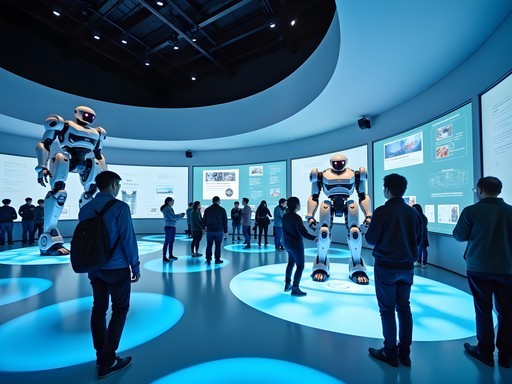






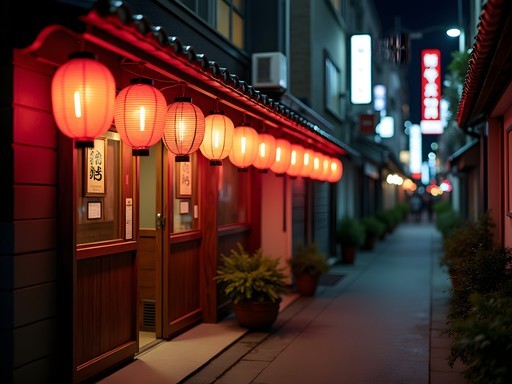

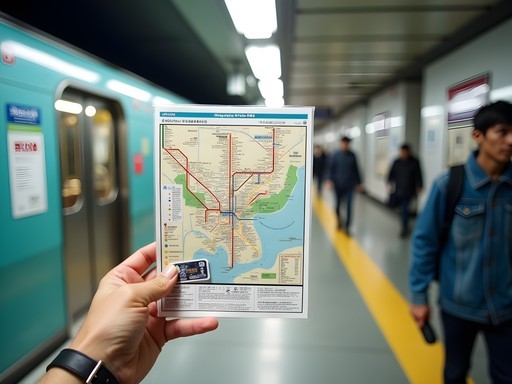
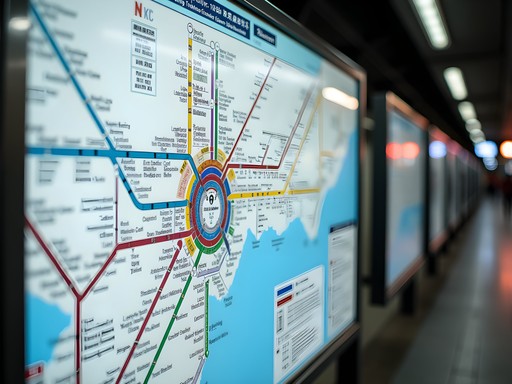
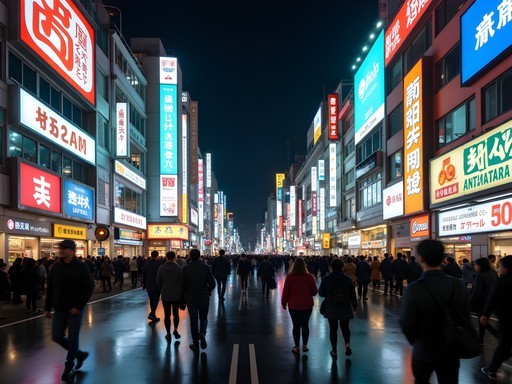
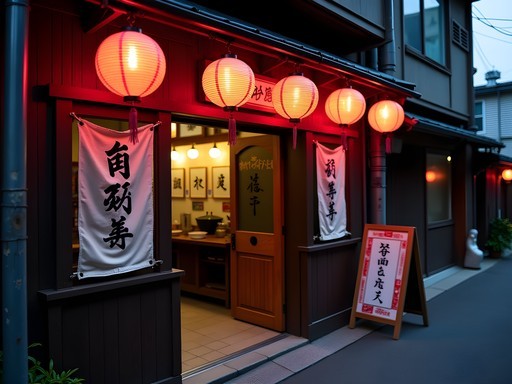
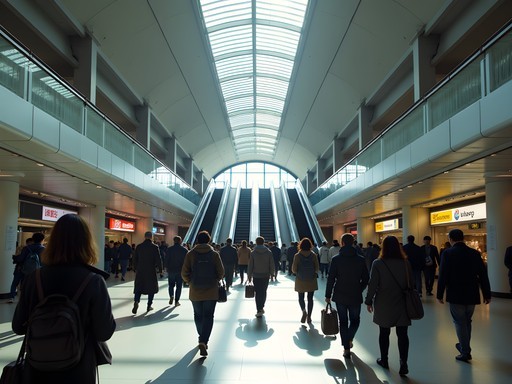
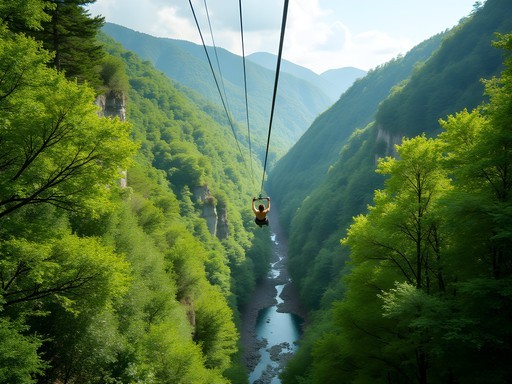
Comments
Taylor Moreau
Excellent write-up, Stephanie. I've been doing business travel between London and Bangalore for nearly a decade, and you've captured the essence of both cities brilliantly. One tip I'd add for Bangalore: the traffic is genuinely challenging, so I always schedule meetings in the same area on the same day. Also, the wellness tech angle is spot-on - I discovered some brilliant meditation apps that came out of Bangalore's startup scene. The contrast between Tokyo's precision and Bangalore's creative chaos is what makes visiting both so rewarding.
Stephanie Romano
Taylor, that's such smart advice about clustering meetings! I learned that the hard way. And yes, the creative chaos vs precision is exactly it.
dreamfan
Did you need special visas for the tech events or just tourist visas? Planning a similar trip and wondering about the networking events you mentioned in Tokyo.
Stephanie Romano
Just tourist visas for both! Most of the networking events I attended were open to visitors. In Tokyo, check out Tokyo Startup Hub - they have English-friendly events almost weekly. For Bangalore, many coworking spaces host open meetups.
dreamfan
Perfect, thanks!
oceanchamp
This is so cool! Never thought about tech tourism before
Stephanie Romano
Right?? It completely changed how I think about travel. The startup scene in both cities is incredible!
Bryce Diaz
Stephanie, your journey from correctional officer to tech scene explorer is inspiring! I spent three months bouncing between these exact cities last year. In Tokyo, don't miss the monthly Tech Meetups at Digital Garage in Shibuya - incredible networking. And in Bangalore, the startup energy at Koramangala is unmatched anywhere in Asia. The contrast between Japanese precision and India's creative chaos in tech development is fascinating. One tip: the Tokyo subway system is overwhelming at first, but their navigation apps are light years ahead of ours - saved me countless times when rushing between meetings. Did you get to experience the AI exhibitions at Miraikan in Odaiba?
Stephanie Romano
Thanks Bryce! I did visit Miraikan - mind-blowing experience! Their human-robot interaction exhibit changed my perspective completely. Agree about the Tokyo subway apps - absolute lifesavers. I missed the Digital Garage meetups though - adding that to my list for next time!
exploremood
You guys are giving me so many ideas for my trip! @Bryce how did you handle the work-life balance while traveling through these intense cities?
Bryce Diaz
Honestly, it was challenging! Tokyo especially can be overwhelming. I made it a point to visit Yoyogi Park every few days for some green space, and in Bangalore I joined a drop-in yoga class at Cubbon Park on weekends. The digital detox was necessary between all the tech immersion!
islandgal
Love this perspective! How did you manage the language barrier in Tokyo while networking? I'm heading there in January and worried about connecting with locals in the tech scene.
Stephanie Romano
Great question! I used translation app which was a lifesaver, but honestly found most people in Tokyo's tech scene spoke decent English. Business cards are essential though - exchanging them properly shows respect for local customs.
islandgal
Thanks! That's reassuring. Will definitely stock up on business cards!
exploremood
This is exactly the guide I needed! Planning a tech tour through Asia next spring and these two cities are at the top of my list. The contrast between Tokyo's futurism and tradition sounds incredible.
Stephanie Romano
So glad you found it helpful! You're in for an amazing experience. Feel free to DM me if you have any specific questions about either city!
exploremood
Thanks! Will definitely take you up on that offer. Curious about coworking spaces in Bangalore - any favorites?
Stephanie Romano
WeWork Galaxy was my go-to! Great community and amazing coffee. Also check out Bangalore Central Library - not a coworking space per se, but perfect for a productive day with some local flavor.
Taylor Moreau
Stephanie, your comparison of Tokyo and Bangalore's innovation ecosystems is spot on. Having visited both for business frequently, I've noticed Tokyo excels at hardware and robotics while Bangalore's software development scene is unparalleled. One thing business travelers should note: Tokyo's tech district (particularly around Shibuya) has excellent co-working spaces if you need to work remotely, while Bangalore's traffic requires careful planning for meetings. The wellness tech section resonated - those meditation apps developed in Bangalore have become essential for my travel routine!
cityseeker
Your transition from correctional officer to tech travel writer is INSPIRING! I visited Tokyo's Digital Art Museum last year and was blown away. The contrast between ancient temples and cutting-edge tech is what makes Tokyo magical. Did you try the Yamanote Line? Best way to see the city's tech districts! My pocket translator was a lifesaver for navigating Akihabara's electronics shops!
redzone
The Yamanote Line is awesome! So efficient compared to transit back home.
happyadventurer
Love this post! Just wondering - how did you handle the language barrier in Tokyo's tech scene? Did most people speak English or did you use translation apps?
Stephanie Romano
Thanks for asking! In Tokyo's major tech companies, English was common, but for authentic networking experiences, I used Google Translate and learned basic Japanese phrases. The effort was appreciated even when my pronunciation was terrible! The language barrier actually led to some of my most meaningful connections.
happyadventurer
That's really helpful, thanks! I'll start learning some basic phrases now.
smartace
Great post! Are there any specific tech events in Bangalore you'd recommend for someone in cybersecurity? Planning a trip there in January.
Stephanie Romano
Thanks for asking! Bangalore hosts several cybersecurity events throughout the year. Check out the Cyber Security Summit usually held at the International Tech Park or NULLCON which sometimes has Bangalore editions. Also worth connecting with the local ISACA chapter - they often host smaller meetups that are great for networking!
Venture X
Premium card with 2X miles, $300 travel credit, Priority Pass